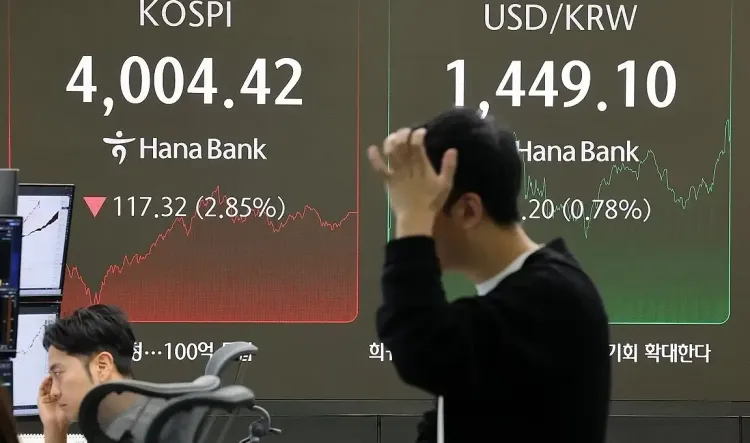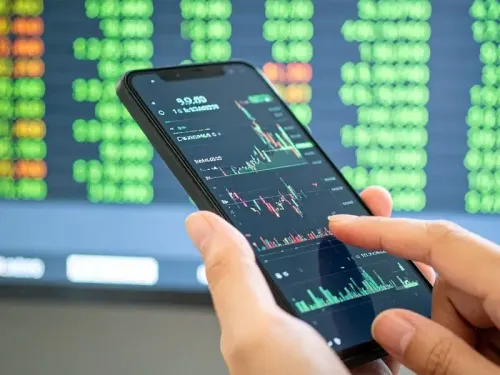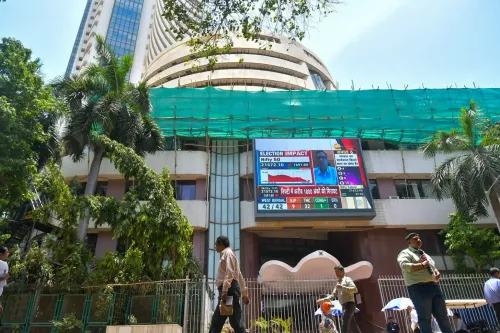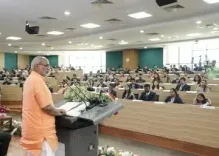Will South Korea's Greenhouse Gas Emission Permits Be Traded Like Stocks?

Synopsis
Key Takeaways
- South Korea expands emission permit trading to include financial institutions.
- Trading system allows transactions similar to stocks.
- Emission reduction target set for 53-61% by 2035.
- New trading hours established for more convenience.
- Future market for emissions trading on the horizon.
Seoul, Nov 23 (NationPress) South Korea is set to enhance its greenhouse gas emission permit trading framework this week, enabling transactions akin to stock trading, as announced by the climate ministry on Sunday.
Beginning Monday, various financial institutions—including banks, insurance companies, and pension funds—will have the opportunity to establish accounts with securities firms, allowing them to trade emission permits via their trading platforms, according to the Ministry of Climate, Energy and Environment.
Previously, emission permits could only be traded directly through the Korea Exchange, the primary stock market operator, and were restricted to designated companies, as reported by Yonhap news agency.
The trading hours will be from 10 a.m. to 12 p.m., with permit auctions scheduled for an hour starting at 2 p.m., and over-the-counter trading will be available for three hours from 2 p.m.
The ministry indicated that the revamped trading system for emission permits is anticipated to enhance transaction convenience for companies and boost trading volumes through the inclusion of financial institutions.
This new framework will also facilitate the establishment of a futures market for emission trading and related financial instruments, as noted by the ministry.
Simultaneously, a presidential commission revealed its endorsement of a target to reduce South Korea's greenhouse gas emissions by 53-61 percent from levels recorded in 2018 by the year 2035, aiming to expedite the shift towards carbon neutrality while bolstering industrial competitiveness.
The Presidential Commission on Carbon Neutrality and Green Growth confirmed its approval of the nationally determined contribution (NDC) target for 2035, which is slightly above the government's initial proposal of a 50-60 percent reduction.
The government plans to finalize the emissions target during a Cabinet meeting on Tuesday and will officially unveil the plan at the 30th United Nations Climate Change Conference (COP30) in Belem, Brazil, which commences on Tuesday and continues until Nov. 21, as stated in a commission release.
According to the Paris Agreement, each nation must submit and update its NDC every five years, outlining initiatives to reduce greenhouse gas emissions.









